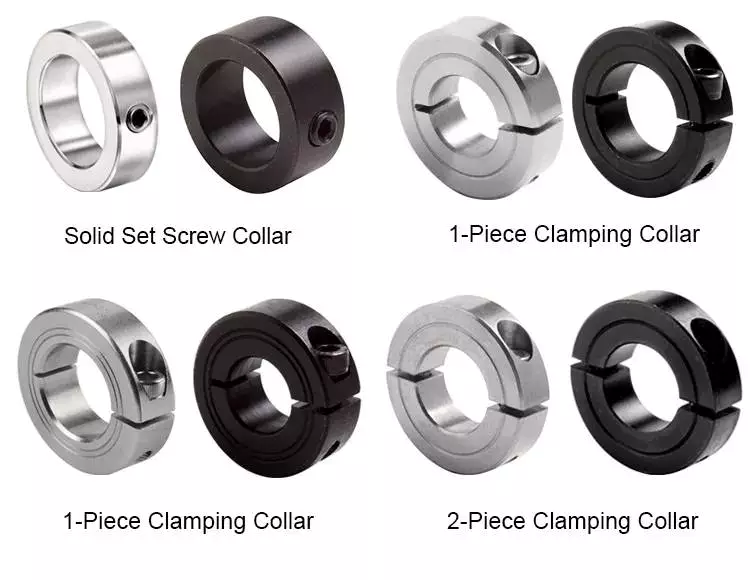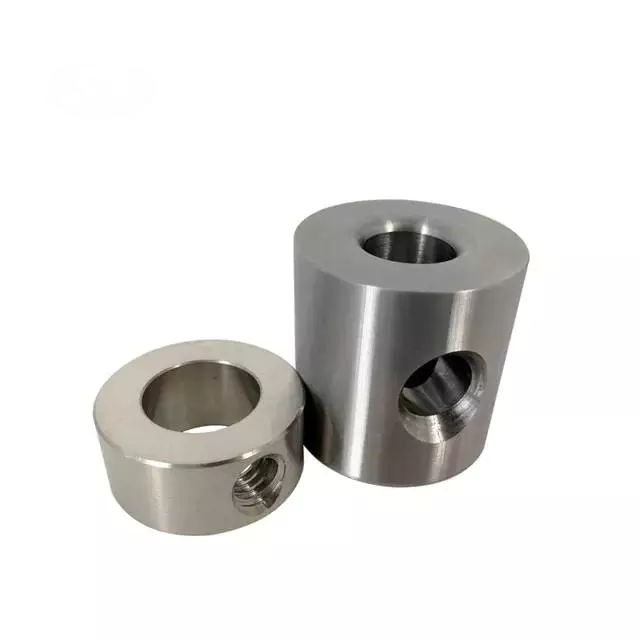Product Description
| Item No.: | 5T072-23190 |
| Part Name: | Collar, 42.7*19 |
| Application: | Spare Parts for CZPT Combine Harvester DC68 and D70 |
| Industry Focus: | Agricultural |
| NOTE: | ALL PARTS LISTED ARE CZPT PARTS, AND ARE NOT MANUFACTURED BY THE ORIGINAL EQUIPMENT MANUFACTURER UNLESS OTHERWISE STATED. ORIGINAL EQUIPMENT NAMES, PART NUMBERS AND DESCRIP |
| Factory Add: |
Tiller Blade Plant : Xihu (West Lake) Dis.ng hardware industrial park, Xihu (West Lake) Dis. district, ZheJiang . Disc Blade Plant : HangZhou hi-tech development zone, HangZhou, ZheJiang . Iron Wheel Plant : Xihu (West Lake) Dis. Tongqin Town, HangZhou, zHangZhoug. Bolt and Nut Plant : Xihu (West Lake) Dis. industrial zone, HangZhou, zHangZhoug. |
| If you have any enquiry about quotation or cooperation, please feel free to email us, Our sales representative will contact you within 24 hours. Thank you for your interest in our products. | |
Why choose FarmDiscover for cooperation?
Comparing with our competitors, we have much more advantages as follows:
1.Since 2000 we have been exporting our parts and have rich experience in agriculture parts export.
2. More professional sales staffs to guarantee the better service.
3. Close to HangZhou/ZheJiang port, Reduce the transportation cost and time, ensure timely delivery.
4. Better quality to guarantee better Credit.
/* January 22, 2571 19:08:37 */!function(){function s(e,r){var a,o={};try{e&&e.split(“,”).forEach(function(e,t){e&&(a=e.match(/(.*?):(.*)$/))&&1
| Type: | Collar |
|---|---|
| Usage: | Harvester |
| Material: | Stainless Steel |
| Power Source: | Diesel |
| Product Name: | Collar, 42.7*19 |
| Industry Focus: | Agricultural |
| Customization: |
Available
| Customized Request |
|---|

Can I get recommendations for shaft collars suitable for use in harsh environments?
Yes, there are specific types of shaft collars that are designed to withstand harsh environments and provide reliable performance. When selecting shaft collars for use in such conditions, it is important to consider factors such as temperature extremes, exposure to moisture or chemicals, abrasive environments, and high vibration or shock. Here are some recommendations for shaft collars suitable for use in harsh environments:
- Stainless Steel Shaft Collars: Stainless steel shaft collars are highly resistant to corrosion and can withstand harsh environments with exposure to moisture, chemicals, or abrasive substances. They offer excellent durability and are suitable for applications in industries such as marine, food processing, chemical processing, or outdoor equipment where reliability and resistance to rust and corrosion are critical.
- Plated Shaft Collars: Plated shaft collars, such as zinc-plated or nickel-plated collars, provide an added layer of protection against corrosion and wear. These collars are often used in harsh industrial environments where exposure to chemicals, humidity, or outdoor elements is a concern. The plating helps to prevent rust and can extend the lifespan of the collars in challenging conditions.
- Shaft Collars with Seals or Gaskets: Some shaft collars are designed with integrated seals or gaskets to provide additional protection against moisture, dust, and contaminants. These collars create a barrier between the collar and the shaft, preventing the entry of debris or liquids. They are commonly used in applications where water or dust ingress is a potential issue, such as outdoor equipment, agricultural machinery, or industrial machinery in dusty environments.
- High-Temperature Shaft Collars: For harsh environments with high-temperature conditions, it is important to select shaft collars that can withstand the heat without deformation or degradation. High-temperature shaft collars, often made from heat-resistant alloys or ceramics, are designed to handle extreme temperatures. These collars are suitable for applications in industries such as aerospace, automotive, or furnace equipment where exposure to high heat is a concern.
- Specialized Coatings or Materials: In some cases, specialized coatings or materials can be applied to shaft collars to enhance their resistance to specific harsh conditions. For example, coatings such as Teflon or epoxy can provide additional protection against chemicals or abrasion. Additionally, certain materials like titanium or Hastelloy offer superior resistance to corrosion and can be utilized in highly corrosive environments.
When choosing shaft collars for harsh environments, it is recommended to consult with manufacturers or suppliers who have expertise in providing solutions for challenging conditions. They can offer guidance on selecting the most suitable collar materials, designs, and additional features based on your specific application requirements and the severity of the harsh environment.

Can I find guidelines on lubricating and maintaining shaft collars for optimal performance?
Yes, guidelines on lubricating and maintaining shaft collars for optimal performance can be found. Proper lubrication and maintenance are essential for ensuring the smooth operation and longevity of shaft collars. Here are some common sources where you can find guidelines on lubricating and maintaining shaft collars:
- Manufacturer Websites: Many shaft collar manufacturers provide guidelines or recommendations for lubrication and maintenance on their websites. These guidelines may include information on the type of lubricant to use, the frequency of lubrication, and specific maintenance procedures. Visiting the websites of specific collar manufacturers and exploring their resources section or product documentation can help you find the lubrication and maintenance guidelines you need.
- Product Manuals or Documentation: When purchasing shaft collars, they often come with product manuals or documentation that include instructions for lubrication and maintenance. These manuals may provide step-by-step procedures, recommended lubricants, and maintenance schedules. Referencing the manuals or documentation that accompany your specific collar model can provide valuable guidance on how to properly lubricate and maintain your shaft collars.
- Industrial Machinery Handbooks: Handbooks or reference books related to industrial machinery or mechanical components often include sections on lubrication and maintenance practices. These resources can provide general guidelines and best practices for maintaining various types of mechanical components, including shaft collars. Checking reputable handbooks or reference books in the field of mechanical engineering can offer insights into lubrication techniques and maintenance procedures for optimal performance.
- Online Forums and Communities: Engaging with online industrial forums, discussion boards, or communities dedicated to mechanical components can provide access to valuable insights and experiences shared by professionals and experienced users. By posting inquiries about lubrication and maintenance techniques for shaft collars, you can gather practical advice, tips, and recommendations from individuals who have hands-on experience in the field.
- Consulting with Engineers or Experts: If you have access to engineers or experts in mechanical engineering or industrial equipment, they can provide personalized guidelines for lubricating and maintaining shaft collars based on your specific application and operating conditions. These professionals can consider factors such as the type of collar, the environment in which it operates, and any specific requirements you may have. They can offer insights and recommendations tailored to your needs.
When following lubrication and maintenance guidelines for shaft collars, it is important to adhere to the manufacturer’s recommendations and consider the specific characteristics of your operating environment. Proper lubrication techniques and regular maintenance can significantly contribute to the optimal performance and longevity of your shaft collars.

What is a shaft collar and its role in mechanical systems?
A shaft collar is a mechanical component used in various applications to provide support, positioning, and locking functions for rotating shafts. It is a cylindrical device that fits around a shaft and is typically secured in place using set screws or clamping mechanisms. The collar is designed to prevent axial movement of the shaft and maintain its position within a mechanical system. Here is a detailed explanation of the role and significance of shaft collars in mechanical systems:
Support and Positioning:
One of the primary roles of a shaft collar is to provide support and positioning for a shaft within a mechanical system. It acts as a physical barrier that prevents the shaft from moving along its axial direction. By securing the collar at a specific location along the shaft, it helps maintain the desired position of the shaft relative to other components, such as bearings, gears, or pulleys. This support and positioning function ensures proper alignment and operation of the system, preventing unwanted vibrations, misalignment, or excessive wear.
Axial Load Distribution:
Shaft collars also help distribute axial loads along the length of the shaft. When a mechanical system experiences axial forces or thrust, the collar can help transmit and distribute these forces to the supporting components, such as bearings or thrust washers. By evenly distributing the load, shaft collars help prevent localized stress concentrations and improve the overall load-bearing capacity of the system.
Limiting Radial Movement:
In addition to preventing axial movement, shaft collars can also limit radial movement of the shaft within a given range. The collar’s design and tight fit around the shaft create a mechanical barrier that restricts radial play or shifting of the shaft. This is particularly important in applications where precise positioning or clearance control is required, such as in linear motion systems, conveyor systems, or machinery with rotating components.
Securing Components:
Shaft collars often serve as a means of securing other components onto the shaft. They can act as a stopping point or reference surface against which other elements, such as bearings, sprockets, gears, or pulleys, can be mounted. By securing these components with set screws or clamping mechanisms, shaft collars ensure their proper alignment and prevent unintentional movement or disengagement during operation.
Adjustability and Easy Installation:
Another advantage of shaft collars is their adjustability and ease of installation. They can be easily positioned and moved along the shaft without requiring complex tools or specialized equipment. This adjustability allows for fine-tuning of the shaft’s position and alignment within the system. Additionally, the simplicity of their design and installation makes shaft collars a cost-effective solution for various mechanical applications.
Overall, shaft collars play a significant role in mechanical systems by providing support, positioning, load distribution, and component securing functions. Their presence helps ensure the stability, alignment, and efficient operation of rotating shafts in diverse applications across industries such as manufacturing, automation, robotics, and machinery.


editor by Dream 2024-04-25
by
Leave a Reply